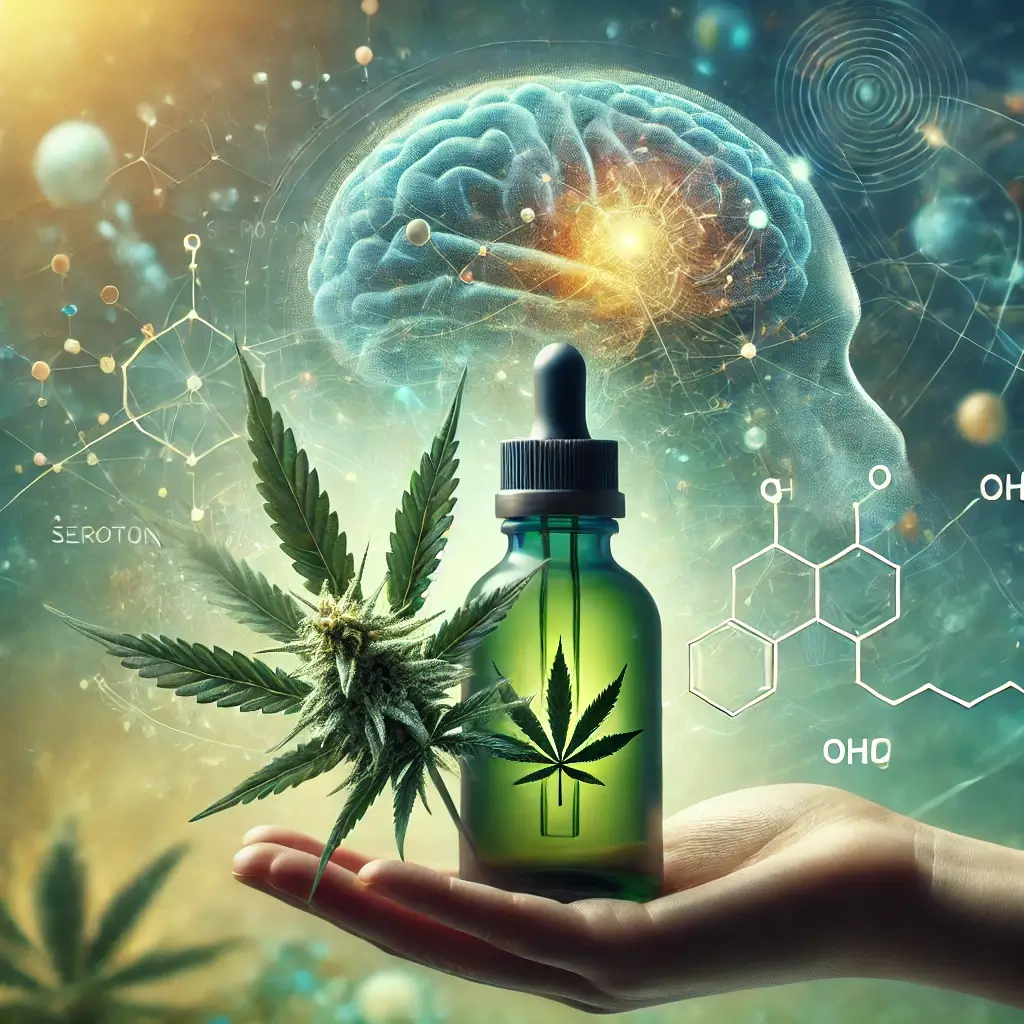CBD’s Potential in Depression Treatment
Cannabidiol (CBD) has demonstrated efficacy in the treatment of depression. The research on CBD as a treatment for depression shows potential, although it is still in its preliminary phases. Here is a comprehensive analysis of our existing knowledge:
Possible Advantages of CBD
Animal research: Multiple studies conducted on animals have demonstrated the antidepressant properties of CBD. Some human studies have shown that CBD may have a positive effect in reducing symptoms of depression, specifically anxiety and sleep issues that are commonly associated with it.
Understanding CBD and Its Mechanisms
CBD, short for cannabidiol, is a chemical component obtained from the cannabis plant. It has garnered growing attention and investigation within the medical and scientific fields. CBD may produce its effects by interacting with the serotonin pathway in the brain.
The Crucial Role of Serotonin
The serotonin system is an intricate network of neurotransmitters and receptors that is vital in controlling mood, emotion, and numerous physiological functions. Serotonin, also known as the “happy chemical,” regulates mood, sleep, hunger, and cognitive function. Disruptions or imbalances in the serotonin system have been linked to a range of mental health issues, including depression, anxiety, and mood disorders.
CBD’s Interaction with Serotonin
Recent findings indicate that CBD has the potential to interact with the serotonin system, which could impact the presence and operation of serotonin receptors, namely the 5-HT1A receptor subtype. This interaction may play a role in CBD’s documented impact on mood, anxiety, and other symptoms connected to mental health.
The Potential of CBD in Mood Regulation
CBD has the potential to regulate the serotonin system, which can contribute to the restoration of equilibrium and enhancement of emotional well-being in persons facing mood-related problems. It is crucial to acknowledge that the precise processes via which CBD interacts with the serotonin system are now under active investigation.
Key Factors to Consider
Insufficient and variable evidence: Additional studies, particularly extensive clinical trials, are necessary to validate the efficacy of CBD for treating depression in humans. The ideal dosage and composition of CBD for the treatment of depression remains uncertain. Certain studies have failed to demonstrate substantial advantages of CBD in treating depression.
Current Recommendations
Seek medical advice from a physician: If you are contemplating the use of CBD for depression, it is imperative to consult a healthcare practitioner. They can assist you in evaluating the potential advantages and disadvantages, considering your specific circumstances and medical background. It is commonly advised to prioritize recognized treatments such as medication and therapy as the initial course of action for addressing depression.
Additional Resources
For more information, visit the National Institute of Mental Health (https://www.nimh.nih.gov/) and the National Center for Complementary and Integrative Health (https://www.nccih.nih.gov/). Remember: It is crucial to exercise prudence and prioritize your safety and overall welfare. Before using CBD, it is imperative to seek guidance from a healthcare practitioner.
